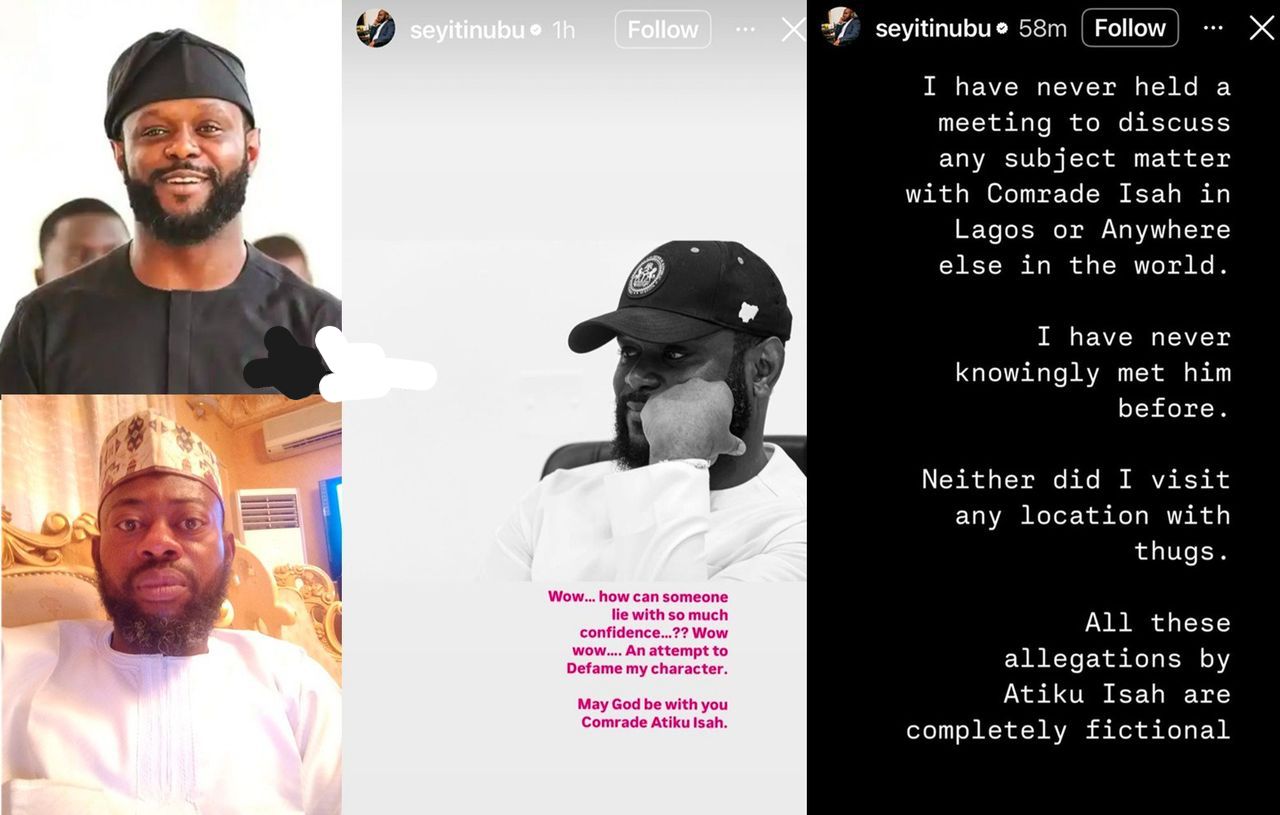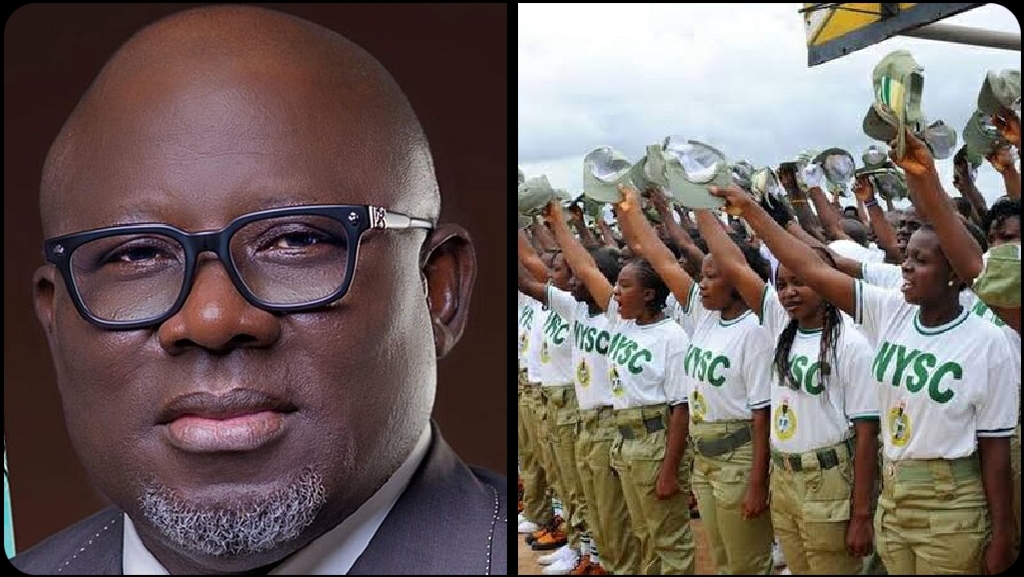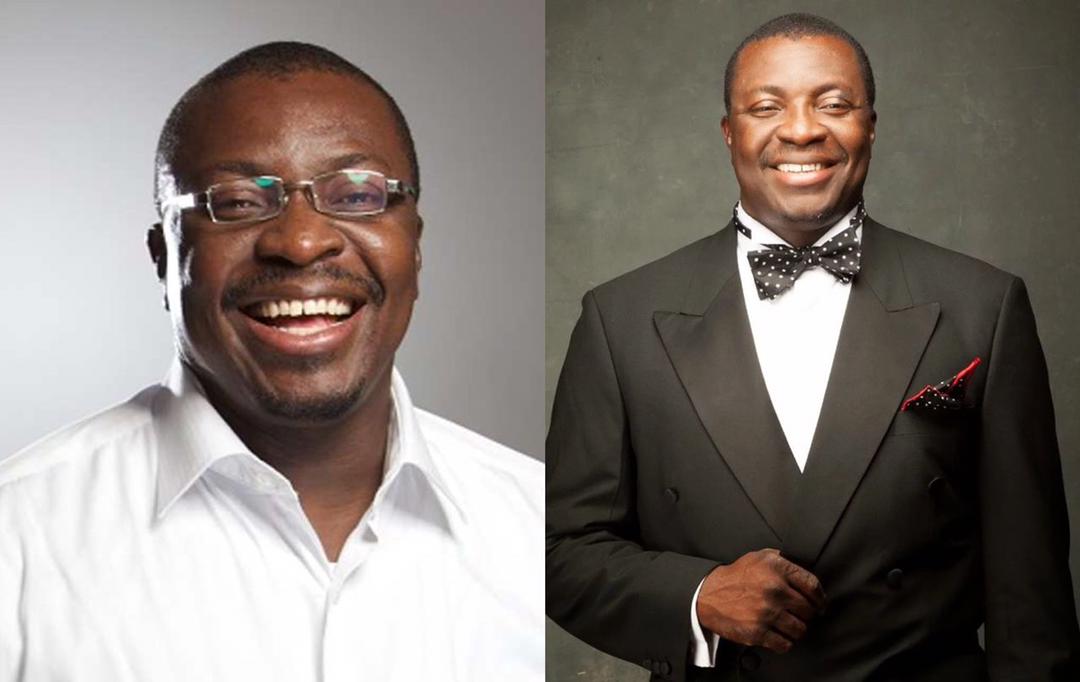
“Lies, Fabrication, and Political Drama”: Seyi Tinubu Responds to Explosive Abduction and Bribery Allegations by NANS President

In a dramatic turn of events that has gripped social media and stirred the already boiling pot of Nigeria’s political atmosphere, Seyi Tinubu, the son of Nigeria’s President Bola Ahmed Tinubu, has finally broken his silence over shocking allegations made against him by the President of the National Association of Nigerian Students (NANS), Comrade Atiku Isah. The student leader had accused Tinubu of orchestrating a terrifying episode involving a failed N100 million bribe offer, abduction, and physical assault—claims that Seyi Tinubu has now categorically denied as “completely fictional.”
The allegations came like a thunderbolt. Atiku Isah, in a widely circulated statement, claimed he was approached with a bribe of N100 million to influence NANS in favor of certain political interests. According to him, his refusal allegedly led to an abduction orchestrated by thugs loyal to the younger Tinubu, followed by an assault intended to silence and intimidate him. It was a bombshell that instantly exploded across media platforms, with students, activists, and the public expressing a mixture of outrage, disbelief, and confusion.
But within hours, Seyi Tinubu issued a terse and strongly-worded statement, directly countering every claim made by Comrade Isah. In his own words: “I have never held a meeting to discuss any subject matter with Comrade Isah in Lagos or anywhere else in the world. I have never knowingly met him before. Neither did I visit any location with thugs. All these allegations by Atiku Isah are completely fictional.” His rebuttal, shared via social media and official communication channels, has since fueled a new wave of debate, with many questioning the motivations behind such a damning accusation.
Seyi Tinubu’s denial is not just a dismissal of falsehood; it is a battle cry against what he believes to be a calculated character assassination. Known more for his work in the business and media sector than for political controversies, Tinubu’s sudden emergence in the middle of such a scandal has left many wondering what forces are at play. Could this be a political hit job orchestrated to tarnish his image ahead of potential political ambitions? Or is it an authentic cry from a student leader trapped in a system that chews and spits out those who resist?
The timing of the allegation could not be more critical. The student community, already agitated by issues such as rising tuition fees, inadequate infrastructure, and frequent academic disruptions, has been increasingly vocal in recent months. The NANS presidency, historically a position of both power and pressure, often draws the attention of political figures seeking influence over the nation’s youth. Comrade Isah’s boldness in naming Seyi Tinubu—a high-profile figure with presidential ties—has raised eyebrows and suspicion, not just about the alleged incident, but about the broader politics within NANS itself.
Social media, as expected, has been the courtroom where the public has tried both men. While some users have praised Comrade Isah for his courage, hailing him as a whistleblower standing against corruption and political manipulation, others are demanding hard evidence, warning against weaponizing allegations without proof. “If you claim abduction and assault, where are the police reports? The medical reports? The witnesses?” one Twitter user asked pointedly. Another wrote, “Seyi Tinubu has a right to defend himself. We need more than words before we throw someone under the bus.”
Meanwhile, Tinubu’s defenders argue that it is becoming increasingly common for public figures—especially those connected to power—to be targeted with lies aimed at undermining their credibility. “When your last name is Tinubu, you carry a target on your back,” said one political commentator on Arise TV. “This isn’t about Seyi personally. This is about bringing down a name, a family, and by extension, the current administration.”
So far, no official charges or police investigations have been publicly confirmed, but the call for a deeper inquiry grows louder. Civil society groups are urging both parties to provide evidence or retract statements to avoid inflaming tensions unnecessarily. The Nigerian public, often weary from years of corruption scandals and political theater, now finds itself in yet another confusing saga, unsure of who to believe and what to expect next.
Interestingly, Comrade Isah has not backed down. He insists on the authenticity of his story and has challenged authorities to conduct a full investigation into the alleged incident. However, his continued silence on specific details—such as the location, the time of the alleged abduction, and supporting documentation—has raised concerns about the verifiability of his claims. Some have even questioned whether internal rifts within NANS may have pushed him to take such a drastic step to gain relevance or settle scores.
As the drama unfolds, Seyi Tinubu maintains a calm yet resolute stance. Known for his low-key demeanor compared to the boisterous style often associated with political figures, his measured response indicates a refusal to engage in political mudslinging. Instead, he seems focused on protecting his image and integrity through facts and public clarity rather than emotional retaliation.
Whether this situation fizzles out or escalates into a full-blown investigation remains to be seen. What’s certain is that this saga has once again spotlighted the fragile intersection of student activism and national politics. It also raises important questions about accountability, credibility, and the weaponization of social narratives in an age where one viral statement can damage reputations irreparably.
For now, Nigerians watch closely, awaiting the next move. Will Comrade Isah bring forward evidence to support his claims? Will law enforcement step in to arbitrate the matter impartially? And will Seyi Tinubu’s denial be enough to clear his name in the eyes of a skeptical public?
In a country where trust in leadership is already on shaky ground, the implications of this controversy stretch far beyond two individuals. It’s about truth, manipulation, and the very future of political engagement in Nigeria. And whether this story ends in vindication or disgrace, one thing is clear: the nation is watching, and no one is backing down.


